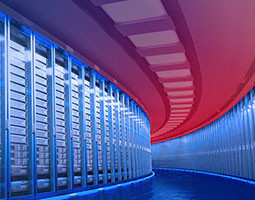If your company is considering outsourcing, you’re far from alone. The Business Process Outsourcing (BPO) Market size was estimated at USD 285.86 billion in 2023 and is projected to reach USD 527.63 billion in 2030. The market is expanding because of factors such as businesses’ increasing emphasis on enhancing productivity and organizational agility, cutting costs, and accelerating key capabilities to survive the rapidly changing business dynamics.
Nearshore centers overcome obstacles
So far so good, but as you go outside company walls, there are also several outsourcing obstacles to overcome. Among the main challenges that might hamper deliveries are time zone differences, communication and language issues, as well as cultural differences. To put it straight: distance matters when it comes to outsourcing.
This is why a nearshore EU location like Vilnius becomes attractive to Nordic companies. Besides offering a similar time zone and ease of travel, many businesses request EU-based centers because of GDPR, data privacy laws and Schrems II. Nearshore hubs bring services close to clients, customers and markets while aligning with local regulations.
Vilnius has been an established location for business services for several years already; Lithuanian representatives took home no less than eight prizes at the CEE Business Services Awards 2022. Vilnius was named “The Most Dynamically Developing City in Central and Eastern Europe”.
Up to 50 percent business case savings
Cognizant’s Delivery Center in Vilnius, established in 2016, provides regional services and support for over 10 clients, within insurance, banking, media and manufacturing, covering all fields of operations and IT. Among the clients are Nordic companies that are leaders within their respective industries.
The hub’s focus is on continuous improvements through automation, robotics and process optimization, all delivered through well-established and proven processes. What benefits can clients expect then? While it differs between clients, a typical example would be:
- Processes improved quality output: 40 percent
- Business case savings over 5 years: 40–50 percent
- Improved customer experience (a few months after service takeover): 5–10 percent
The secret sauce: a multi-lingual center
Among the hubs’ 600+ employees, there are experts with analytic skills, legal knowledge, and specialists in econometrics, AHK (AutoHotKey) programmers, advanced users in MS macro commands, Bloomberg Business users, SQL users, as well as testing users.
Being fluent in tech isn’t enough though. What makes the center stand out is language skills; it’s removing any barriers between the locations. As the center is multi-lingual, its services are offered in Norwegian, Swedish, Danish and English, among other languages. English is the default language, and all employees speak at least one more Scandinavian language on a professional level, all made possible thanks to the in-house Scandinavian language academy with a dedicated team of professional trainers. In addition to language training, the academy also provides studies about cultures, traditions, norms, and rules in each market. Communicating with clients in their preferred language, helps the hub connect, collaborate, and build stronger relationships.
If you’d like to learn more, please visit Cognizant Vilnius hub page.




















